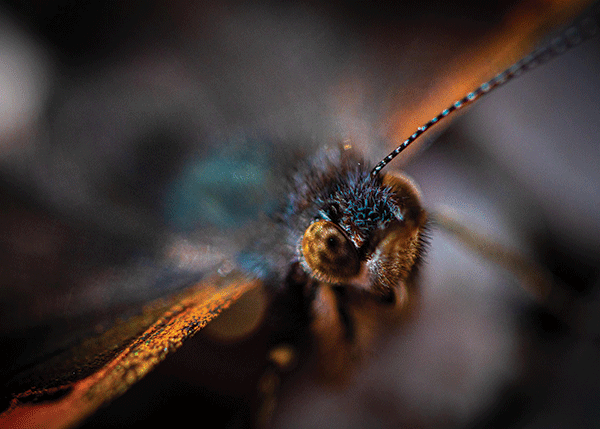We are going nuts for almonds these days. But the dark reality is huge, thirsty, nature-free almond tree plantations, needing millions of bees brought in to pollinate the crops.
Around 80 per cent of the world’s almonds are sourced in California’s Central Valley, where bee farmers truck thousands of colonies of European honeybees, categorised as ‘livestock’, to huge plantations.
They routinely lose 30 per cent of their ‘livestock’ as the bees won’t survive in such a hostile, sterile place. Wild pollinators like native bees and hoverflies also cannot survive in those uniform rows of trees with no other habitat around. This is proving catastrophic to local wildlife.
We know farming can crash invertebrate numbers by harming habitats, but one study on Canadian farmland looking at the number of butterflies, hoverflies, bees, and ground beetle species found one of the biggest factors for their presence and abundance was field size.
Cultivation, pesticides, and crop diversity were important, too, but the field size impact shows how important ‘green corridors’ are for invertebrates to travel through. The edges of the field boundaries, with messy bits, trees, hedges, and so on, provided a vital ‘motorway’ as well as being habitats for invertebrates.
As with any animal, when we remove or change the homes where bugs live, feed or breed, they will not thrive. If we take away the green ‘corridor’, such as a wood, roadside verge or hedge, that they use to colonise new areas, their offspring will be stuck and will not thrive. Sadly, bug homes are being lost at a rapid rate globally. Land conversions to monocultures of crops and trees have replaced rich grasslands, forests, and wetlands, alongside huge urban sprawl in many parts of the world.
You will not find a great variety of invertebrates in monocultures – these fields are intensively managed to remove both plants that are not crops, and unwanted bugs, to reduce disease and pests. One recent study looking at wild pollinators in Britain found evidence of declines across a large proportion of pollinator species between 1980 and 2013.
This coincides with a huge change in farming, as complex landscapes were made uniform and specialised. Fields were merged, so field edges, trees and hedgerows were lost; more chemicals were used; pasture meadows were replaced by fertilised grassland; and mixed farming became less profitable. All these created less favourable conditions for most bugs and especially pollinators.
All this uniformity is desired and dictated by the modern food industry. To rebug through better habitat care, we will need to increase the knowledge and capacity of those managing the land, as well as ensuring food markets support them, through a shift to more invertebrate-friendly farming methods.
The idea that we should encourage farmers to shrink the size of fields they have spent many decades increasing – to cope with larger, more efficient machinery, and to produce more food – is quite a hard one to contemplate. But it could have a huge impact.
At the very least we should be protecting the smaller fields and boundaries like hedges that do still exist, and rewarding farmers for nature-friendly farming, such as those who apply organic approaches.
Where land is in use, we need to creatively support farmers in the nature-sharing approach, because one thing is clear: without public intervention, farmers will have an almost impossible task balancing the demands of wildlife and the need to produce food crops and livestock at ever lower cost, as well as more rapidly and more uniformly.
We need to change food consumption patterns, prices, and cosmetic expectations to tackle this huge issue.
Rebugging the Planet: The Remarkable Things that Insects (and Other Invertebrates) Do – And Why We Need to Love Them More by Vicki Hird is out now (Chelsea Green Publishing, £12.99).















0 Comments